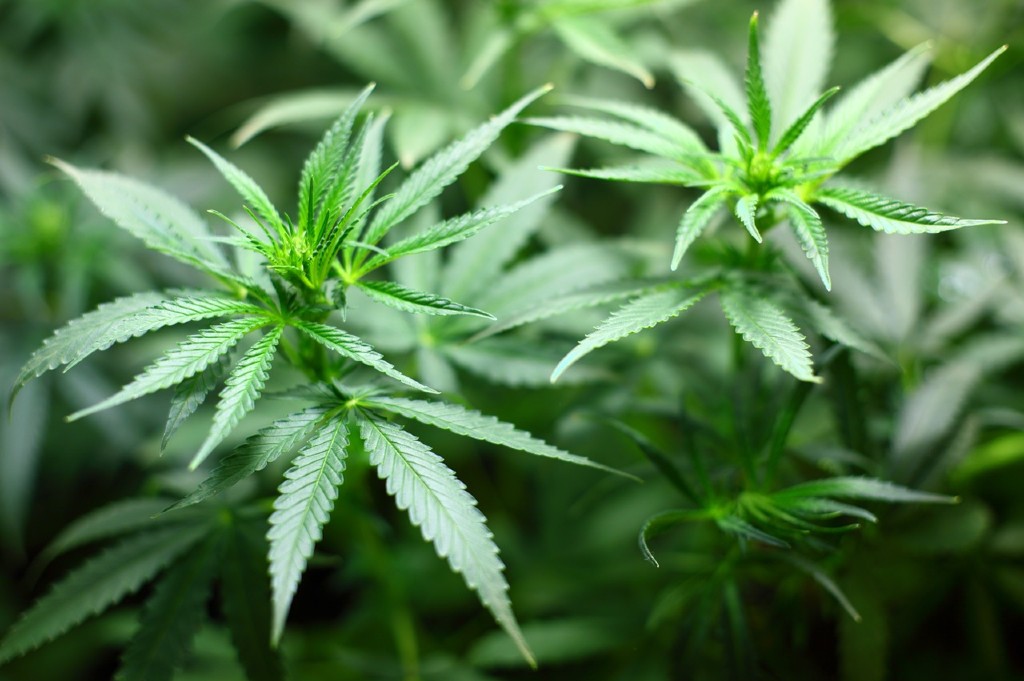Contents
Even if you aren’t entirely familiar with the term ‘cannabinoids’, you probably already know at least two – CBD and THC. Indeed, these two have been the talk for quite some time now.
However, no matter what you might’ve heard about the pros and cons of the compounds found in the cannabis plant (because that’s what cannabinoids are), only by learning how they work will you be able to see the full picture.
And this is exactly why we’ve prepared the following list. Below, you’ll find a detailed explanation of what cannabinoids are, how they work, and what are the most common ones.
Cannabis and the ECS
In essence, cannabis plants consist of hundreds of chemical compounds called cannabinoids. These compounds attach themselves to receptors of our brain and the central nervous system, triggering chemical reactions within the body.
They do that through the endocannabinoid system (ECS), which controls the homeostasis within numerous internal systems of the human body. Because cannabinoids have a similar structure to endocannabinoids found in the ECS, they can effectively work with the system, providing therapeutic results across the body. We’ve covered the ECS in more detail in this blog post, so be sure to check it out if you want to learn more about the ECS.

This article takes a closer look at plant cannabinoids, and how its effect on the central nervous system can help treat chronic pain and other ailments.
Plant Cannabinoids in Cannabis
Cannabis is well known for producing the cannabinoid tetrahydrocannabinol (THC). Tetrahydrocannabinol (THC) is known for its psychoactive effects. However, this is not indicative of the overall effects of cannabis. The other types of cannabinoids found in the cannabis plant do not have the psychoactive effects like THC.
Types of Cannabinoids
Tetrahydrocannabinol, otherwise known as the famous THC, is the best-known product of the cannabis plant. (THC) is known for its psychoactive effects. However, this is not indicative of the overall effects of cannabis, with other types of cannabinoids free of such effects.
Another popular cannabinoid that has been getting more recognition recently is cannabidiol, CBD for short. Unlike THC, it doesn’t come with any psychoactive effects. Instead, it’s mostly known for providing numerous health benefits that have been heavily researched in the past few years.
However, there are many more cannabinoids than just THC and CBD. In fact, the plant produces over a hundred different compounds. Their level is significantly lower than those of THC and CBD, though. Because of this, researchers find it challenging to estimate the exact number of cannabinoids with the cannabis plant and their effect on the central nervous system.
Nevertheless, researchers have managed to gather data on several cannabinoids within the plant. We’ve listed the most common compounds below:
Tetrahydrocannabinol (THC)
Tetrahydrocannabinol (THC) is by far the most recognized cannabinoid. Mostly associated with marijuana and its psychoactive effects, THC has gained quite a reputation among its supporters and opponents alike.
Generally speaking, THC can stimulate numerous short-term effects when consumed. The most common ones include relaxation, sedation, energy, dry mouth, anxiety, elation, and laughter. These, as well as the level of their effect, can vary depending on the person.
Essentially, it’s all connected to individual body chemistry, although various THC strains and concentrations also play a pivotal role in how a person might feel.
CBD (Cannabidiol)
The most straightforward way to describe CBD would be to tell it provides the same benefits as THC without the high feeling. Of course, there’s much more to it. In general, CBD has gained tremendous recognition recently, with CBD products taking the market by storm. This is because CBD seems to provide a plethora of health benefits, although further research is required to confirm all its therapeutic effects.
For now, we know that CBD may help with a number of things, including fighting inflammation, anxiety and stress, chronic and acute pain, workout recovery, mental focus, sleep aide, healing injuries, Parkinson’s Disease, Bruxism, dementia, cancer, alcoholism, epilepsy, and opioid addiction.
It may even help your pets with anxiety and pain!
CBG (Cannabigerol)
Although CBG estimates for around 1% of most cannabis strains, it’s one of the most profound cannabinoids found in the plant. In fact, it can be described as the ‘mother’ cannabinoid, with all other compounds being synthesized from it. Also, despite being a minor cannabinoid, CBG still provides great potential for therapeutic benefits.
Like CBD, CBG has many potential uses, which include anti-inflammation, pain relief, reducing nausea, calming anxiety, treating irritable bowel syndrome, and slowing the proliferation of cancer cells.
CBC (Cannabichromene)
Since its discovery over 50 years ago, CBC has been continuously researched for its many medicinal benefits. Although not as popular as THC or CBD, CBC comes with its unique range of benefits, working brilliantly with other cannabinoids.
CBN (Cannabinol)
What’s interesting about cannabinol is that it’s created by THC aging. Despite this, however, it’s non-intoxicating and doesn’t come with psychoactive effects known to THC. On the other hand, the fact it derives from THC means that it’s found in larger amounts in older cannabis flowers containing THC.
In fact, many users seek out older cannabis plants to take advantage of the benefits CBN provides. Its uses may include pain relief, slowing bacterial growth, helping sleep, and treating muscle spasms.
CBGV (Cannabigerivarin)
Cannabigerivarin (CBGV) is a cannabinoid acid derived from CBG. It’s found in small quantities in particular cannabis strains and can be activated by heat or light exposure.
Essentially, CBGV has a significant role in CBD consumption, as it helps the body metabolize it. Generally speaking, CBGV can be considered a cannabinoids enhancer, as it increases their effectiveness when consumed.
THCV (Tetrahydrocannabivarin)
Although THCV has a similar molecular structure to THC, its overall effects differ. The main difference between the two is that THCV has even stronger psychoactive effects for a shorter period. According to various studies, THCV can inhibit some THC effects, enhancing others as well.
CBDV (Cannabidivarin)
Since its structurally similar to CBD, CBDV provides very similar effects. As for the research around CBDV, studies have been focused mostly on its effect on seizures. The findings are similar to those involving CBD, with CBDV being an anticonvulsant.
CBCV (Cannabichromevarin)
CBCV is closely related to CBC, working in the same way and providing numerous similar benefits. More research is needed to clarify the possible therapeutic benefits of CBCV. As for today, it does show a lot of promise.
Effects of cannabinoids on the human body
Different cannabinoids can have various effects on the human body. In general, we can distinguish the seven most significant effects cannabis compounds can provide, including:
- Pain relief: One of the most exciting effects of cannabis includes its ability to treat chronic pain. In fact, studies show that the cannabis plant may have many positive effects on the nervous system and may treat pain. For more information on cannabis and its effect on pain, check out our CBD for Pain blog post.
- Appetite: Since the endocannabinoid system is involved in regulating appetite, cannabinoids play a profound role here. For example, THC is known for increasing appetite, while other cannabinoid medicines and supplements have proven to be beneficial for treating weight loss in people with cancer or AIDS.
- Memory and learning: Various cannabinoids, profoundly CBD, have proven to be useful when treating conditions related to memory, such as PTSD or panic disorders.
- Sleep: Although more research is required, cannabinoids are said to impact sleep patterns and help people with insomnia, especially CBD.
- Mood: Cannabis is well known for its relaxing properties, working brilliantly when dealing with stress and anxiety. Again, this is especially true for CBD, which doesn’t come with any psychoactive effects that may disrupt some people’s moods in a negative way.
- Anti-seizure: Research has shown that CBD has anti-seizure properties and can be used when treating some types of uncontrolled epilepsy.
- Anti-nausea: Many doctors use cannabis-based medicines to help with vomiting and nausea caused by chemotherapy, which proves the anti-nausea properties of cannabinoids.

For more information on cannabis and it’s affect on pain, check out our CBD for Pain blog post.
Trying Cannabis Products
If you are just starting out with trying a cannabinoid, we recommend CBD. CBD is the most widely available and trusted. You’ll also want to discuss CBD with your doctor because cannabinoids are not right for everyone.
It’s important to go with a manufacturer that does third-party laboratory testing because many products are mislabeled. All of MojaveRx’s products are manufactured to the highest standard and undergo third-party laboratory testing. If you have any questions about the right CBD product for you, contact MojaveRx today.
Conclusion
The effects of cannabis are still being studied. What we currently understand about the cannabis plant’s effects throughout the body shows great promise in treating pain, anxiety, and much more. The coming years will surely show exciting developments in the cannabis field of research, providing us with even more answers regarding the many advantages of the cannabis plant.
Disclaimer
The statements expressed on this website are purely opinion of the author and not factual. These statements have not been evaluated by the Food and Drug Administration. Any products referenced on this website are not intended to diagnose, treat, cure, or prevent any disease. It’s highly suggested to consult with your medical professional prior to any use of the products referenced on this website. This website and author specifically disclaim any liability in connection with the products contained on the website.

